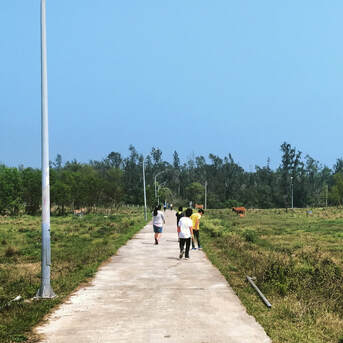Between 2016 and 2017, I served as an English teaching assistant at one of the elementary schools in Kinmen Island. I also wrote for UDN Opinion on the project titled "The Taste of Sothern Min" (閩南的滋味). During this period, I had the opportunity to observe the Hokkien education in Kinmen and conducted an ethnographic work on the language ideologies of Kinmenese Hokkien in educational settings.
Publications
- Wan, T.-L. A. (2020). Language Revitalization and Perceived Language Shift: A Case of Kinmenese Hokkien. Berliner China-Hefte/Chinese History and Society. 51: 106-122.
- Wan, T.-L. A. (2019). Film Review: The Gangster's Daughter (2017). Asian Ethnicity. 20(30): 396-398.

